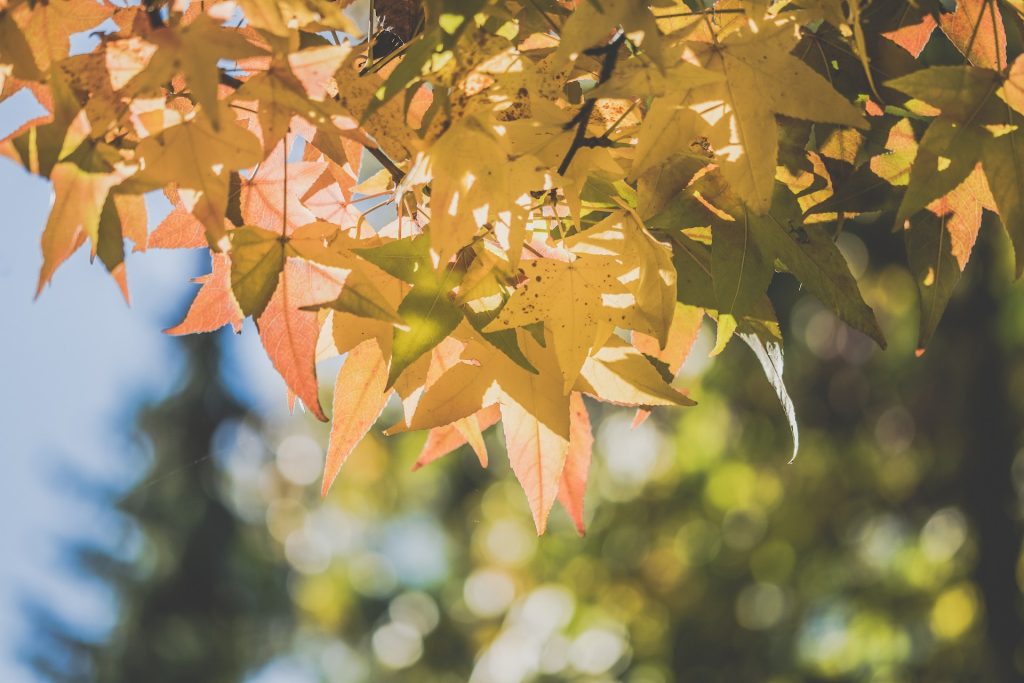Discover the impact of climate and season on your hair washing routine.
Does the Climate or Season Affect How Often You Should Wash Your Hair?
Have you ever wondered whether the climate or season has any impact on how often you should wash your hair? Well, you’re not alone! Many people have found themselves pondering this very question. In this article, we’ll explore the relationship between hair washing and the climate or season. So, let’s dive right in and uncover the truth behind this hair-raising topic!
Understanding Hair and Scalp Health

Your hair is more than just a crowning glory; it’s also closely connected to the health of your scalp. To keep both in top condition, understanding the science behind hair washing is crucial.
When you wash your hair, you remove excess oils, dirt, and dead skin cells that can accumulate on your scalp. This process helps to keep your hair and scalp clean, preventing issues like dandruff or itchiness.
But did you know that there is more to hair washing than just getting rid of dirt? The science behind it is fascinating. When you apply shampoo to your hair, the molecules in the shampoo interact with the molecules on your scalp. These interactions break down the oils and dirt, allowing them to be rinsed away with water. The lathering action of the shampoo helps to lift away dirt and impurities, leaving your hair and scalp feeling fresh and clean.
The Science Behind Hair Washing
Now that you understand the basics of how hair washing works, let’s delve deeper into the science behind it. Your scalp produces sebum, a natural oil that helps to moisturize and protect your hair. However, if too much sebum is produced, it can lead to greasy hair and a buildup of oils on the scalp. On the other hand, if the scalp doesn’t produce enough sebum, it can result in dryness and flakiness.
When you wash your hair, the shampoo helps to regulate the production of sebum. It removes excess oil without stripping away too much, striking a delicate balance for optimal scalp health. Additionally, the act of massaging the scalp while shampooing stimulates blood flow, which can promote hair growth and overall scalp health.
How Climate Impacts Your Scalp
Believe it or not, the climate can have a significant impact on the health of your scalp. Whether you live in a hot and humid environment or a cold and dry one, understanding how climate affects your scalp is key in determining the frequency of hair washing.
In hot and humid climates, sweat and excess moisture can accumulate on the scalp, leading to a greasy and uncomfortable feeling. It’s important to wash your hair more frequently in these conditions to keep your scalp clean and refreshed. On the other hand, in cold and dry climates, the lack of moisture can cause the scalp to become dry and itchy. In this case, it’s essential to strike a balance between cleansing the scalp and maintaining its natural oils.
Furthermore, the climate can also affect the type of hair products you use. In humid environments, lightweight and oil-free products may be more suitable to prevent weighing down the hair. In contrast, in dry climates, moisturizing and nourishing products can help combat dryness and keep the scalp and hair hydrated.
By understanding how climate impacts your scalp, you can make informed decisions about your hair care routine and ensure that your hair and scalp remain healthy and balanced.
Seasonal Changes and Hair Care
Just like the seasons change, so should your hair care routine. Let’s take a closer look at how you should adjust your hair washing practices throughout the year.
When it comes to hair care, the changing seasons bring about unique challenges and considerations. Each season presents its own set of climatic conditions that can impact the health and appearance of your hair. By adapting your hair washing routine to suit the specific needs of each season, you can ensure that your locks remain healthy, vibrant, and full of life.

Hair Washing in Winter
As the chilly winter weather sets in, your scalp may become drier. The cold air, combined with indoor heating, can suck the moisture out of your hair and scalp, leaving them feeling dry and brittle. To combat this, consider reducing the frequency of hair washing to avoid stripping away essential oils that naturally moisturize your scalp and hair.
In addition to adjusting the frequency of your hair washing, it’s also important to pay attention to the products you use during the winter months. Look for shampoos and conditioners that are specifically formulated to provide extra hydration and nourishment. These products often contain ingredients like argan oil, shea butter, or coconut oil, which can help replenish moisture and restore vitality to your hair.
Hair Washing in Summer
Ah, summertime! With the hotter temperatures and increased humidity, you may find yourself washing your hair more frequently to keep it feeling fresh. However, it’s essential not to overdo it, as excessive washing can lead to dryness and damage.
During the summer months, your scalp tends to produce more oil due to the heat and sweat. This can make your hair feel greasy and weighed down. To strike a balance, try using a gentle shampoo that effectively removes excess oil and build-up without stripping away too much moisture. Consider incorporating a clarifying shampoo into your routine once a week to deep cleanse your scalp and remove any product residue or impurities.
Additionally, don’t forget to protect your hair from the harmful effects of the sun. Just as you apply sunscreen to your skin, your hair also needs protection from UV rays. Look for hair care products with SPF or wear a hat to shield your hair and scalp from sun damage.
Hair Washing in Spring and Fall
During the transitional seasons of spring and fall, it’s best to adjust your hair washing routine accordingly. These mild seasons allow for a balanced approach, keeping your hair and scalp clean without going overboard.
As the weather transitions from cold to warm or warm to cold, you may notice changes in your hair texture and oil production. It’s important to listen to your hair’s needs and adapt your washing routine accordingly. If you find that your hair becomes oilier or drier during these seasons, consider adjusting the frequency of your hair washing to maintain a healthy balance.
Furthermore, spring and fall are great times to indulge in deep conditioning treatments. These treatments can help replenish moisture, repair any damage caused by environmental factors, and prepare your hair for the upcoming season. Look for hair masks or deep conditioners that are specifically formulated to address your hair’s needs, whether it’s hydration, repair, or color protection.
By being mindful of the seasonal changes and adjusting your hair washing routine accordingly, you can ensure that your hair remains healthy, vibrant, and resilient throughout the year. Remember, your hair is as unique as you are, so pay attention to its needs and give it the care it deserves.
Climate and Hair Type
When it comes to the impact of climate on your hair washing frequency, your hair type also plays a role. Let’s explore the effects of different climates on various hair types.
How Dry Climates Affect Hair Washing Frequency
If you live in a dry climate, such as a desert region, your hair and scalp may be prone to dryness. The lack of humidity in the air can lead to moisture loss from your hair, making it more susceptible to becoming dry and brittle. This can result in frizziness, split ends, and an overall lackluster appearance.
When dealing with a dry climate, it’s important to limit the number of times you wash your hair to preserve its natural oils and prevent further dryness. Washing your hair too frequently can strip away these oils, leaving your hair even drier and more prone to damage. Instead, opt for a gentle shampoo and conditioner designed specifically for dry hair types. These products are formulated to provide extra hydration and nourishment, helping to combat the effects of the dry climate.
In addition to adjusting your hair washing frequency, incorporating a deep conditioning treatment into your hair care routine can also help combat the dryness caused by a dry climate. This treatment can provide an extra boost of moisture to your hair, leaving it feeling soft, smooth, and more manageable.
How Humid Climates Affect Hair Washing Frequency
In contrast, if you reside in a humid climate, excess moisture can cause the hair and scalp to feel greasy. The high humidity levels in the air can lead to an overproduction of sebum, the natural oil produced by the scalp. This can leave your hair looking oily and weighed down.
Washing your hair more frequently in humid climates can help maintain a fresh and clean appearance. By removing the excess oils and sweat that can accumulate on your scalp, you can prevent your hair from looking greasy and limp. However, it’s important to strike a balance and avoid overwashing, as this can strip away too much oil and cause your scalp to produce even more sebum in response.
When washing your hair in a humid climate, it’s recommended to use a clarifying shampoo to thoroughly cleanse your scalp and remove any buildup. Additionally, using a lightweight conditioner on the ends of your hair can help keep them moisturized without adding extra weight.
Another tip for managing your hair in a humid climate is to embrace hairstyles that work with the natural texture of your hair. For example, opting for loose braids, buns, or updos can help keep your hair off your neck and prevent excessive sweating, which can contribute to greasiness.
Overall, understanding how different climates affect your hair type is essential for maintaining healthy and beautiful hair. By adjusting your hair washing frequency and using appropriate hair care products, you can ensure that your hair remains nourished and well-balanced, regardless of the climate you live in.
Expert Recommendations for Hair Washing
So, what do the experts have to say about hair washing and its relation to the climate or season? Let’s find out!
Dermatologists’ Advice on Hair Washing
According to dermatologists, there’s no one-size-fits-all answer to how often you should wash your hair. It largely depends on your hair type and the specific needs of your scalp. Consider consulting with a dermatologist to find the optimal hair washing frequency for your unique situation.
Hair Stylists’ Tips for Seasonal Hair Care
Seasoned hairstylists recommend adjusting your hair care routine with the changing seasons. They emphasize the importance of using moisturizing products and avoiding harsh shampoos that can strip away natural oils.
Common Hair Washing Myths Debunked
As with many topics, there are several myths surrounding hair washing. Let’s debunk a couple of the most common ones.
Should You Wash Your Hair Daily?
Contrary to popular belief, washing your hair every day is not necessary for most people. In fact, excessive washing can strip away the natural oils that keep your hair healthy and shiny. Find a balance that suits your hair type and lifestyle.
Does Cold Weather Make Your Hair Dry?
While cold weather can make your scalp feel drier, it doesn’t directly affect your hair. Instead, the dryness is often due to indoor heating systems. Combat this by using a humidifier and applying a nourishing mask to restore moisture.
In conclusion, the climate and season can indeed impact how often you should wash your hair. Adjusting your hair care routine accordingly can help maintain a healthy scalp and luscious locks. Remember, finding the right balance is key, so take into account your hair type, specific climate, and the recommendations of experts. Now, go forth and conquer your hair care routine with confidence!





